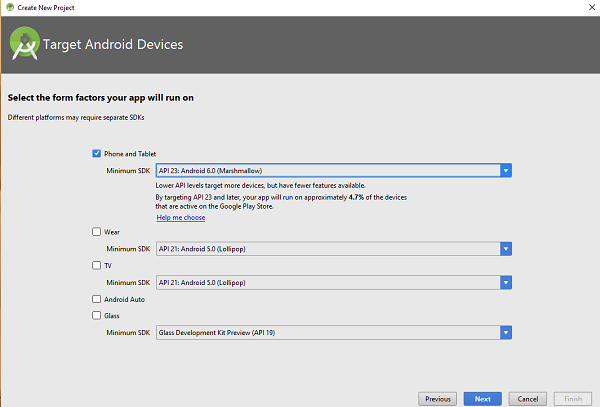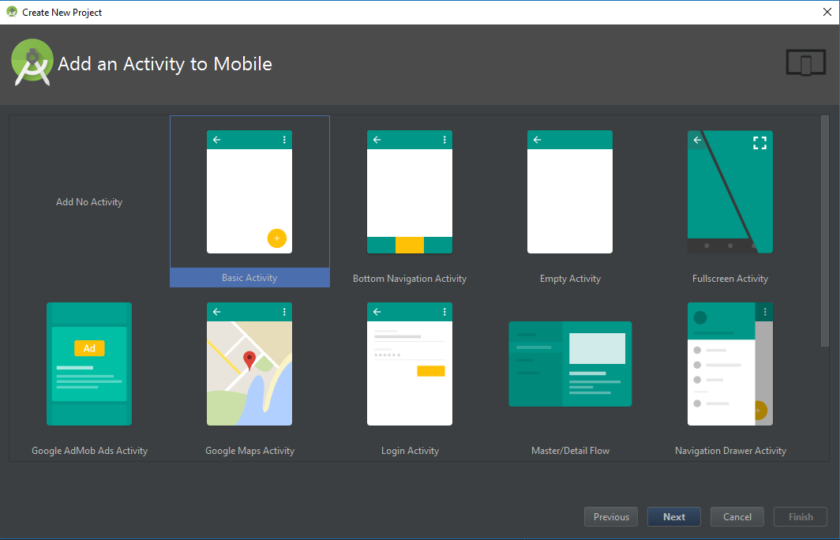
- Create simple android app using android studio install#
- Create simple android app using android studio skin#
The new Android project is created with a single simple activity called MainActivity. In both Visual Studio and Fire, the New Project dialog provides the Android app template under Oxygene for Java and Android. If you’ve installed them into custom locations and it fails to find them, this gives you an opportunity to specify the installation folders. The first time you create or open an Elements project for Android, it will do a ‘pre-flight check’ to ensure that it can locate the things it needs, notably the JDK and the Android SDK.
Create simple android app using android studio install#
So be sure to run it as Administrator (or install the Android SDK into a custom location to make things simpler). As mentioned earlier, if the Android SDK was installed into the default location, it will require administrative privileges to install them. Note: When you re-run the SDK Manager, it will often find updates to install. You can launch the emulator from this screen by selecting it and pressing the Start button.

Create simple android app using android studio skin#
Once you’ve specified the SD Card Size for the emulator (say 512) and chosen a skin (a screen resolution) you can use the Create AVD button to finish the job. You can choose any installed API level, for example Android 2.2 - API Level 8 (also known as Froyo) or Android 4.0.3 - API Level 15 (also known as Ice Cream Sandwich).

Just click New, give the emulator a name and select the API in the You can do this from the Android Virtual Device Manager, which is accessible from the SDK Manager by choosing Tools, Manage AVDs. When the tools and platforms are all installed, you will be able toĬreate an Android Emulator, also known as an Android Virtual Device or AVD. To get started with Android development, you need to install the Java Development Kit and Android SDK, as outlined here (Fire) and here (Visual Studio). There is a free online DroidDraw tool for building Android User Interfaces via a WYSIWYG interface, but editing the XML directly is NET’s XAML) is edited to lay out the visual elements. Without a WYSIWYG design surface for building the UI.

Screen sizes, formats and orientations, it was intentionally designed Projects, and produces both native Java JAR files and the Android APKįile necessary for deployment to an Android device.īecause Android runs on such a wide variety of devices with different Oxygene for Java ships with templates for creating Android The Android operating system is based on theĭalvik Virtual Machine (VM), which is a mobile-optimised VM similar to


 0 kommentar(er)
0 kommentar(er)
